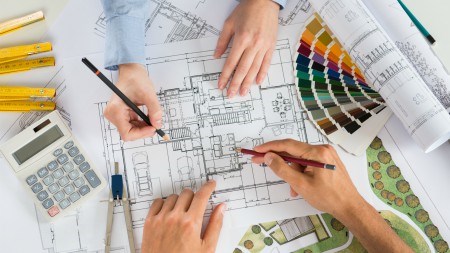Beware of over-capitalising on your home.
The South African property market is a far cry from a bubble waiting to burst. However, most real estate experts will confirm that the industry although recovering, has still got a long way to go, and is expected to remain on a slow incline for quite some time. While this news allows us to lay fear and dread aside as we are seeing improvements, we still need to recalibrate our perspectives and expectations to the new economic climate …
The FNB House Price Index for August showed a slight acceleration in its year-on-year growth rate, from a previous month's revised 6.3%, to 6.4% in August. The average value of homes transacted in the FNB House Price Index was R894,600.
With the scene set, how should we realign ourselves to ensure that we don't unwittingly cross lines into unnecessarily low financial gain?
“On an analysis of the local market and economist opinions, I would say that the first step homeowners should take is to make sure that they don't over-capitalise in this new economic season” says Craig Hutchison, CEO of Engel & Völkers Southern Africa. “Many homeowners are deciding not to sell their existing homes with year-on-year house prices as they currently stand. There's nothing wrong with holding onto your property for a while longer, the only risk is that during this time homeowners will most likely be tempted to pour their excess money into their existing homes. While there's no argument against making improvements to your property, Craig warns that if done without careful consideration, expected return on investment may be a sore disappointment in times ahead.
Numerous homeowners substantially over-capitalise their properties, getting carried away by the most high-tech features and brand names. They are of the mindset that they would always be able to recover their investments once they sell.
“My advice to would-be-renovators is that they should first focus on aspects that will add long term value to their homes. Start by making sure that the house is generally well maintained and that everything works … door handles, windows, air-conditioners etc. Then move on to things like security features, IT installations, plumbing and rewiring. These are the types of improvements that will hold up in house price negotiations and secure long term return on investment.”
Homeowners can also look at low-cost renovations that will result in definite value for money such as increasing the basic curb appeal of their home such as a fresh coat of paint or prettying up their garden.
“At the end of the day, each homeowner needs to take the decision into their own hands” says Craig. “Our hope, as industry experts, is that before making any major changes to their homes, they would consult their local property sales advisor to assist them in making a decision that will bring maximum financial benefit in the future.”
Replacing the geyser with a solar one, or installing instant hot water systems, will offer the next owner savings in terms of space and electricity and improve the property's value. He also recommends buying good quality paint that can maintain its look for over seven years, rather than having to re-paint more often with cheap paint.
Remember that it generally takes a minimum of five years to truly benefit from improvements on your home; take this into consideration when you plan your time-line between renovating and selling.
In closing, Craig had these final considerations to voice.
Look at the property as the bank would:
Don't forget that a bank does not have an emotional outlook on a property. Even though you might get a buyer who has the same taste as you do, and feels that the property is perfect in every way, the bank might not include the fancy fixtures and fittings, and your buyer might end up not getting a loan on the purchase price.
Stay within the lines:
Any changes such as boundary walls, additional rooms, porches, overhangs etc need to be approved by your municipality. Don't leave this for when you want to sell as the process may delay transfer and you could sit with penalties of interest on the house price during the delay period.
It is not about what you want:
When wanting to benefit financially from renovations, always keep an open mind. The property's location and structure might be what someone wants, but chances are that they would also have to do some tweaking to make it exactly what they want. Thus don't spend too much money on items such as a swimming pool which another family might not need. A pool is a luxury for most, and not a necessity. While real estate listings may still boast “new carpeting throughout” as a selling point, potential home buyers today may cringe at the idea of having wall-to-wall carpeting. Add to that the probability that the carpet style and colour that you thought was absolutely perfect might not be what someone else had in mind.
Overbuilding for the neighbourhood:
Home owners may, in an attempt to increase the value of a home, make improvements to the property that unintentionally make the home fall outside of the norm for the neighborhood. While a large, expensive remodel, such as adding a second story with two bedrooms and a full bathroom, might make the home more appealing, it will not add significantly to the resale value if the house is in the midst of a neighbourhood of small, one-storey homes. The house might be beautiful, but any money spent on over-building might be difficult to recover unless the other homes in the neighbourhood follow suit.
Improving your home does not always guarantee a return on investment. It is difficult to imagine spending thousands of rands on a home-improvement project that will not be reflected in the home's value when it comes time to sell. Making improvements to better your living experience is always a good idea, but do not spend additional money on unnecessary items just before placing your property on the market. Rather let the new home owner decide what they would like to do, and ensure that you receive a return on your investment.



